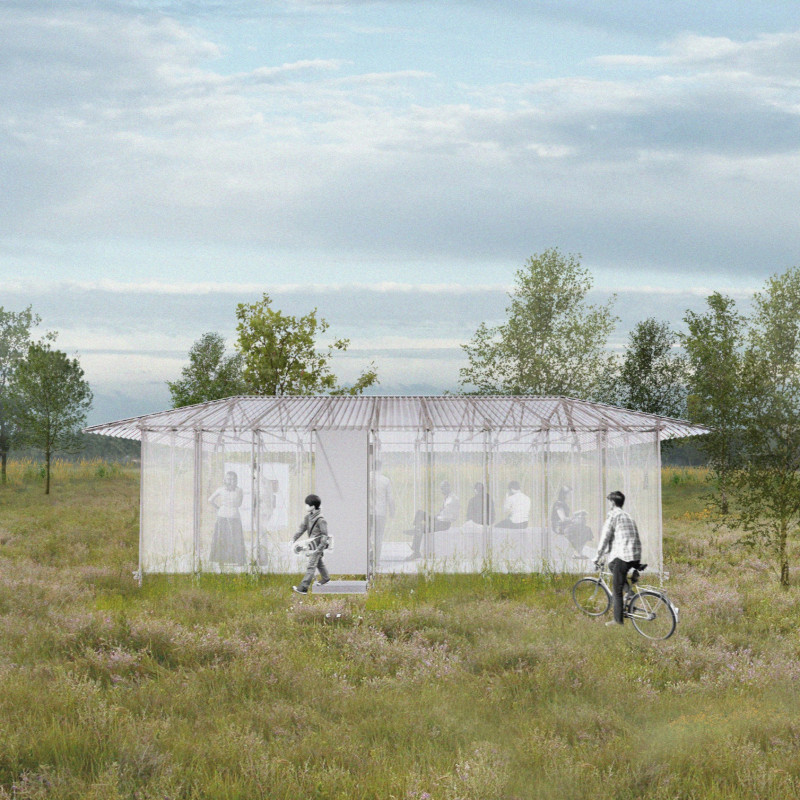5 key facts about this project
The central function of the Portable Reading Room is to provide a welcoming space for readers of all ages, fostering a sense of belonging and encouraging literary exploration. By eliminating rigid walls and utilizing open layouts, the design promotes a seamless interaction between the interior and exterior environments. This approach allows users to experience the beauty of the outdoors while engaging with their reading material, effectively enhancing the overall experience.
The architectural design features a lightweight aluminum scaffolding structure that offers strength and durability while remaining portable. This material choice reflects a commitment to sustainability, as aluminum is both recyclable and readily available. The roof is made from polycarbonate corrugated panels, allowing ample natural light to flood the space while providing protection from the elements. The inclusion of fabric curtains adds flexibility to the reading room, enabling users to adjust the privacy level according to their preferences, further supporting the idea of a customizable space.
The floor of the reading room is composed of perforated panels which serve dual purposes: they enhance the aesthetic quality of the space and allow for ventilation, creating a comfortable atmosphere for occupants. This attention to materiality and function underscores the project’s focus on providing a user-centric design that adapts to various activities. Whether individuals seek solitude for personal reading or a collaborative environment for group discussions, the Portable Reading Room is equipped to cater to diverse needs.
A unique aspect of this architectural project lies in its commitment to permeability and interaction with the surrounding environment. The large windows and transparent materials used throughout the design foster a strong visual connection between the interior spaces and the natural world outside. This interaction not only enriches the reading experience but also reinforces the idea that literature can act as a bridge to broader cultural and environmental contexts.
The Portable Reading Room is designed to be versatile enough to inhabit various geographical settings, from bustling urban centers to serene rural landscapes. This adaptability speaks to the architects’ goal of promoting access to literature in diverse communities, making the project relevant across different cultural backgrounds. By encouraging reading as an essential activity, the design advocates for literacy and the sharing of knowledge while fostering a sense of community.
Through its thoughtful design approaches, the Portable Reading Room: Infinite Space exemplifies a modern architectural response to the evolving needs of contemporary society. It challenges conventional notions of space dedicated to reading and emphasizes a harmonious relationship between people and their environment. The project represents a significant step toward creating literary spaces that are not only functional but also inspire creativity and connection among users.
For those interested in exploring the nuances of this project further, including architectural plans and sections that illustrate the innovative designs and ideas behind it, reviewing detailed presentations will provide deeper insights into the vision and execution of the Portable Reading Room. Discover the full potential of this project as it seeks to redefine the landscape of reading environments.


























